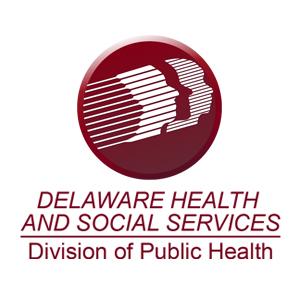Officials warn of overdose threat following eight deaths
State officials are warning people who use heroin and other opioids to make sure they carry overdose-reversing medication after eight recent deaths.
“The eight deaths beginning last Friday have doubled the total number of deaths from suspected overdoses this month,” said Secretary Kara Odom Walker of the Department of Health and Social Services. “These deaths have happened in all three counties, to men and women, and to people in their 20s to those in their 50s. This horrific toll shows that no one in active use is immune from the risk of death in our state.”
Officials say eight people died from suspected overdoses in a four-day span doubling the number of suspected overdoses to 16 for August. So far in 2018, officials say, there have been 167 deaths from suspected overdoses. In 2017, 345 people died from overdoses, up 12 percent from the 308 people who died in 2016, according to the Division of Forensic Science.
Elizabeth Romero, director of DHSS’ Division of Substance Abuse and Mental Health, encouraged individuals in active substance use in Delaware to see a medical provider immediately, ask police or other first responders for help, or to call DHSS’s 24/7 Crisis Services Hotline to be connected to trained crisis professionals who can discuss treatment options.
“If you are in active use, we urge you to seek treatment immediately,” Romero said. “If you continue to use substances, have the overdose-reversing medication naloxone with you because the risk for death is increased. Our first priority is to reduce harm and save lives. From there, we can connect people to the treatment options that will work best for them.”
In Kent and Sussex counties, the number is 1-800-345-6785. Individuals and families also can visit DHSS’ website, www.HelpIsHereDE.com, to find addiction treatment and recovery services in Delaware or nearby states.
Naloxone is available at many Delaware pharmacies without a prescription, or by attending community trainings through Brandywine Counseling and Community Services. The next community training is at 6 p.m., Monday, Aug. 27, at Abundant Life Christian Church, 28714 Seaford Road, Laurel.
If individuals see someone overdosing, officials say, they should call 911. Under Delaware’s 911/Good Samaritan Law, people who call 911 to report an overdose and the person in medical distress cannot be arrested for low-level drug crimes.
If a user has ingested fentanyl or a drug laced with fentanyl, time is critical because the powerful opioid quickly affects the central nervous system and the brain. In 2017, officials say, about 61 percent of the overdose deaths in Delaware involved fentanyl and 40 percent involved heroin. In many overdose deaths, multiple substances are found in a person’s system during toxicology screens, officials say.
Naloxone, carried in Delaware by community members, paramedics, some police officers and other first responders, can be administered in overdoses involving opioids – fentanyl, heroin or opioid painkillers. Because fentanyl is more potent than heroin or opioid painkillers, multiple doses of naloxone may be needed to reverse an overdose. In 2017, Delaware paramedics and police officers administered naloxone 2,714 times in suspected overdose situations to a total of 1,906 patients.























































